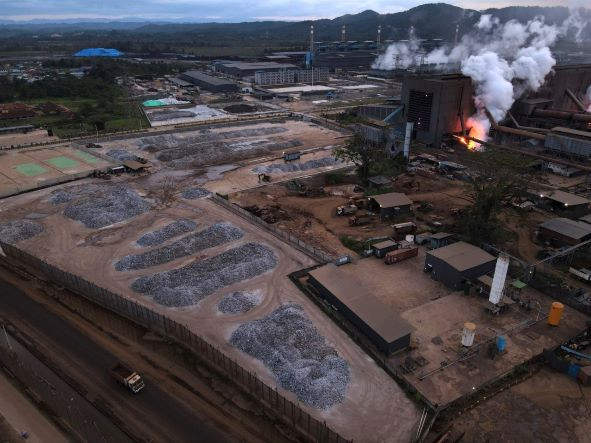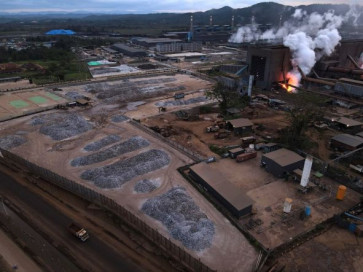Popular Reads
Top Results
Can't find what you're looking for?
View all search resultsPopular Reads
Top Results
Can't find what you're looking for?
View all search resultsIndonesia’s trade flows and the questionable merits of resource nationalism
If, as Indonesia claims, it is its sovereign right to do what it wants with its natural resources, then surely it must also be the sovereign right of every other country to do what it wants with its natural resources.
Change text size
Gift Premium Articles
to Anyone
R
ecent coverage in the domestic media of Indonesia’s ever-increasing restrictions on the export of less than fully processed and refined metal minerals has been almost exclusively very positive.
Looking at just from the perspective of Indonesia being a major world producer and exporter of bauxite, copper, nickel, tin and other natural resources, including agricultural products, it is easy to understand and see the rationale for the government’s resource nationalist policies.
In isolation, it seems to make perfect economic sense for the government to have as its objective maximizing the export revenue that Indonesia earns from the exploitation of its natural resources.
The investment minister has been quoted as saying that the value of Indonesia’s processed and refined nickel exports has already reached or, at the very least will soon reach, US$27 billion to $30 billion, being a tenfold increase over the value of Indonesia’s nickel ore exports in 2017. Accordingly, how can restrictions on the export of less than fully processed and refined metal minerals not be a good idea and entirely in keeping with Indonesia’s stridently claimed sovereign right to do what it wants with its natural resources and otherwise ensure that Indonesia and all Indonesians derive the maximum economic benefit possible from the exploitation of the country’s natural resources?
The reality, however, is that Indonesia is not merely a major producer and exporter of metal minerals and other natural resources. Indonesia is also a major importer and consumer of natural resources produced in other countries. Accordingly, in assessing whether or not Indonesia’s restrictions, on the export of less than fully processed and refined metal minerals, are really a good idea, it is important to have regard to the totality of Indonesia’s trade position.
A look at Indonesia’s trade flows is revealing. One example only, of where Indonesia is a major importer and consumer of other countries’ natural resources, will serve to highlight my point. Readers may be surprised to learn that Indonesia is one of the world’s three largest importers of wheat, a wholly unrefined agricultural product.
In 2022-2023, Indonesia imported some 9,000,000 metric tonnes of wheat or about 5.3 percent of global wheat exports. Approximately 46.7 percent of Indonesia’s wheat imports are sourced from Australia and the rest from Canada, the United States, Argentina and (at least in previous years) Ukraine.



















